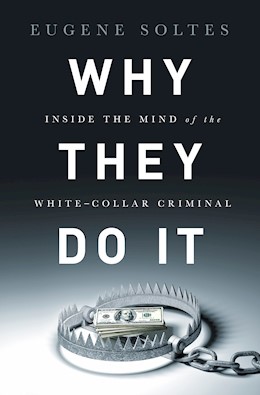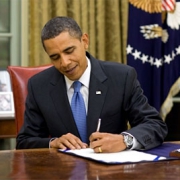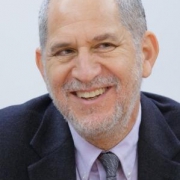Never Black and White: Eugene Soltes Exposes the Gray
 White collar criminals typically conjure images of dark boardrooms, wealthy conspirators and syndicated, international crime rings. Yet, in a new book, Eugene Soltes shows white collar crime is less a cause of pernicious plots and more a product of a lack of focus, proximity and context.
White collar criminals typically conjure images of dark boardrooms, wealthy conspirators and syndicated, international crime rings. Yet, in a new book, Eugene Soltes shows white collar crime is less a cause of pernicious plots and more a product of a lack of focus, proximity and context.
What distinguishes Why They Do It from others on the subject is Soltes’ extensive use of almost 50 interviews with those convicted of white collar crimes- which he defines as individuals in high social standing who committed crimes while doing business. The main takeaway is that corporate leaders are more or less normal people, who are as susceptible to the same conflicts of interest and ability to rationalize decisions made in the moment as the rest of us. By virtue of their position, however, their decisions can do harm not only to themselves but also all with whom they do business.
Given the proximity to profits and the potential for self-dealing, the business community is uniquely exposed to pressures for misbehavior. For many executives, a focus on short-term stock price, and pressure to establish themselves as strong leaders can motivate actions that differ from what might happen should they concentrate on long term stability, growth and an internal culture of ethics. Often, as Soltes points out, time is invested in building a career whereas less effort is expended in consideration of how certain decisions may jeopardize it. Therefore, their behavior becomes incongruent with who they are as people- which is also why their perception of consequences become so separate from in the moment decisions to act.
In addition, as Soltes highlights, denizens of the c-suite are removed- via hierarchy- from the workers that are usually affected by the results of unintentional malfeasance. Knowing this, it is easy to see how wielding a pen that signs a policy can be seen as wholly distinct from actions that cause direct harm- such as wielding a sword or knife.
Further, manipulative corporate conduct is not prosecuted or contextualized in the same fashion as those that commit mass murder or robbery making it easier to justify decisions. Especially when we consider that what is white collar crime in 2016 was simply business as usual in 1916 (and 1966), the tendency to view white collar crime as not so much black and white but as a large expanse of gray is evident. This is also why many of the interview subjects in Soltes’s book have an absence of emotions such as angst, guilt and shame- they were simply operating within the parameters of their role- or so they thought.
Soltes, who serves as the Jakurski Family Associate Professor of Business Administration at Harvard Business School, with this book has authored a distinctive entry in the business ethics canon that presents a unique perspective derived from those who perpetrated white collar crime- and are now dealing with the repercussions. For those currently atop the business pyramid, they would be wise to internalize just how far an ethical lapse can make them fall.
Further Reading:
- Decision Making (research page)
- Conflicts of Interest (research page)









